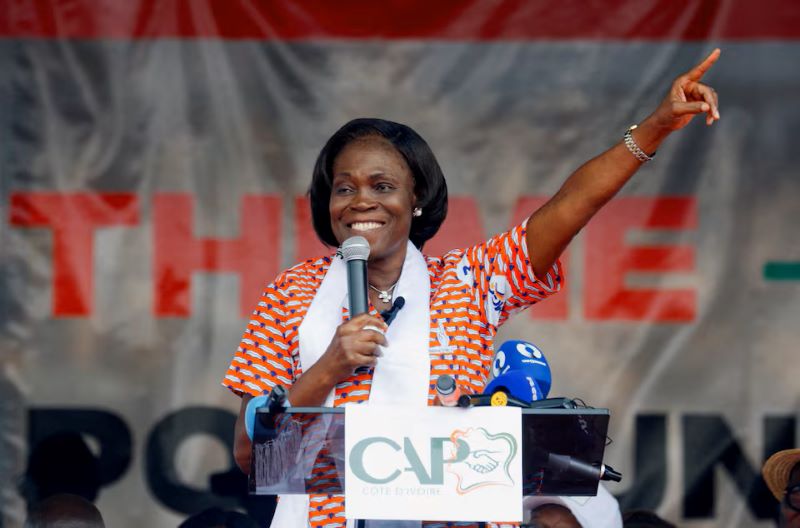A High-Stakes Presidential Bid
ABIDJAN – Simone Gbagbo, the former First Lady of Ivory Coast, is launching a presidential campaign on Saturday, opening a new and independent chapter in her long political career. This move comes after she was once sought by the International Criminal Court on charges of crimes against humanity. The 76-year-old, known domestically as the “Iron Lady,” stands as the most prominent candidate approved to challenge the incumbent, Alassane Ouattara, who is heavily favored to secure a fourth term.
A Influential and Tumultuous Tenure
During the controversial presidency of her former husband, Laurent Gbagbo, Simone Gbagbo was a central figure. His time in office was defined by a civil war that lasted from 2002 to 2007 and reignited following the disputed 2010 election. Her significant influence within the administration was captured in her own words to the French newspaper L’Express, where she stated, “All the ministers respect me, and I am often placed above them.”
From Arrest and Divorce to a New Political Party
The 2010 political crisis, triggered by Laurent Gbagbo’s refusal to concede defeat to Ouattara, resulted in approximately 3,000 deaths. It concluded in 2011 when the couple was arrested together at their home in Abidjan. Their political and personal partnership, which began when they were young opposition activists, officially ended in 2021 when Laurent Gbagbo filed for divorce. The following year, Simone Gbagbo established her current political vehicle, the Movement of Skilled Generations, which she describes as founded on social democratic principles.
Positioning for the Future of the Opposition
According to historian and political analyst Arthur Banga, a victory for Simone Gbagbo in this election is unlikely due to her new party’s limited electoral reach. However, he told Reuters that she is strategically “positioning herself for the future.” Banga noted that she is poised to fill the political vacuum created by the electoral commission’s rejection of candidacies from both Laurent Gbagbo and former Credit Suisse CEO Tidjane Thiam. “She will become the leader of the political opposition after these elections,” Banga predicted.
A Foundation in Activism
Simone Gbagbo’s political roots trace back to the 1970s, when she worked as a trade unionist opposing the single-party rule of the nation’s founding president, Félix Houphouët-Boigny. In the 1980s, she was a co-founder of the Ivorian Popular Front party alongside Laurent Gbagbo—whom she married in 1989—and other dissident figures. Her entry into national politics occurred in 1995 when she won a seat in the National Assembly during elections dominated by President Henri Konan Bédié’s Democratic Party.














